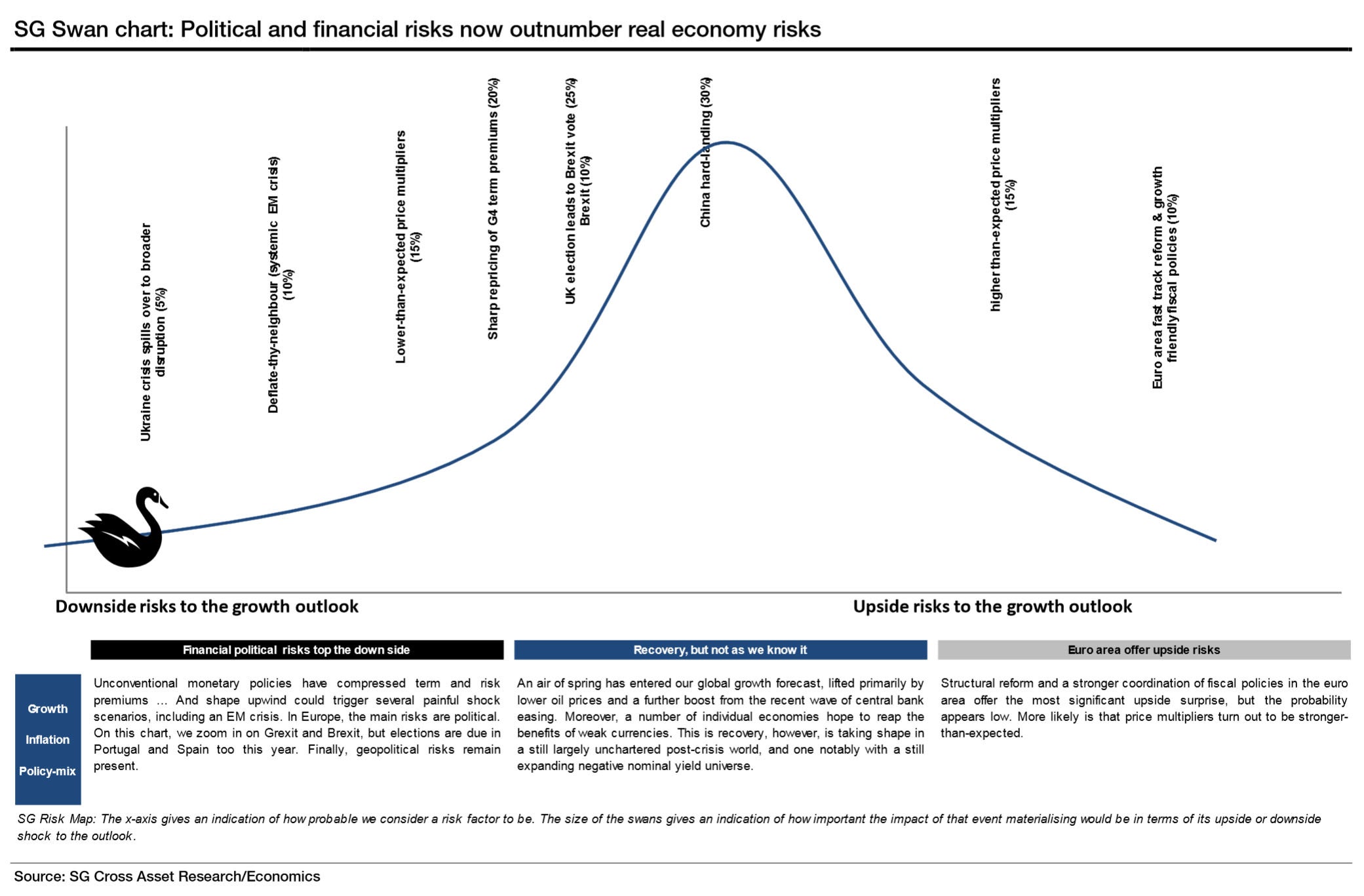Société Générale analysts recently released their Global Economic Outlook report. Analysts outlined their six economic themes for the post-crisis world.
1. Lower and differing “price multipliers”
Historical multipliers used to model the complex relationships between oil prices, interest rates, exchange rates and economic growth rates are lower now than they were prior to the Financial Crisis. However, analysts point out that these multipliers remain positive.
According to the report, global legacy debt and tighter government regulations are the causes of multiplier reduction.
2. Household income growth rates reduce deflation risk
Analysts believe fears that plummeting oil prices would lead to deflation are overblown. They predict rising household incomes driven by job creation and increasing wages.
The report emphasizes that these drivers will likely occur at different rates for different worldwide economies.
3. Tightening at the Fed, easing at the ECB
Analysts are forecasting a June rate hike in the U.S. In Europe, they are predicting continued asset purchases (at a tapered pace) beyond September, 2016. Analysts do not foresee an ECB rate hike until mid-2018.
4. Bond yields bottoming
Analysts see a “slow and orderly” recovery from the historically low bond yield environment.
The report warns of likely volatility during the normalization process, but analysts do not believe that this volatility will be dangerous enough to lead to another economic crisis.
5. Emerging markets hurt by strengthening dollar
While a stronger dollar is good for Asian countries that export to the U.S., many emerging market countries have dollar-denominated foreign debt.
As the strength of the dollar increases, the local currency value of these debts grows, reducing profits and potentially leading to solvency issues.
6. Populism clouds the European outlook
Analysts believe that Europe’s recovery has no major hurdles ahead and that the risk of further downside is minimal.
However, the report does discuss the unpredictable nature of angry voters in countries such as the U.K. and Greece.

Overall, analysts see the world continuing its slow march down the long road of recovery from the Financial Crisis.
In the meantime, economists will continue to try to pin down the nuances of the post-crisis global economy.
Read this article and all my other articles for free on Benzinga by clicking here
Want to learn more about the stock market? Or maybe you just want to be able to look sophisticated in front of your coworkers when they ask you what you are reading on your Kindle, and you’d prefer to tell them “Oh, I’m just reading a book about stock market analysis,” rather than the usual “Oh, I’m just looking at pics of my ex-girlfriend on Facebook.” For these reasons and more, check out my book, Beating Wall Street with Common Sense. I don’t have a degree in finance; I have a degree in neuroscience. You don’t have to predict what stocks will do if you can predict what traders will do and be one step ahead of them. I made a 400% return in the stock market over five years using only basic principles of psychology and common sense. Beating Wall Street with Common Sense is now available on Amazon, and tradingcommonsense.com is always available on your local internet!


